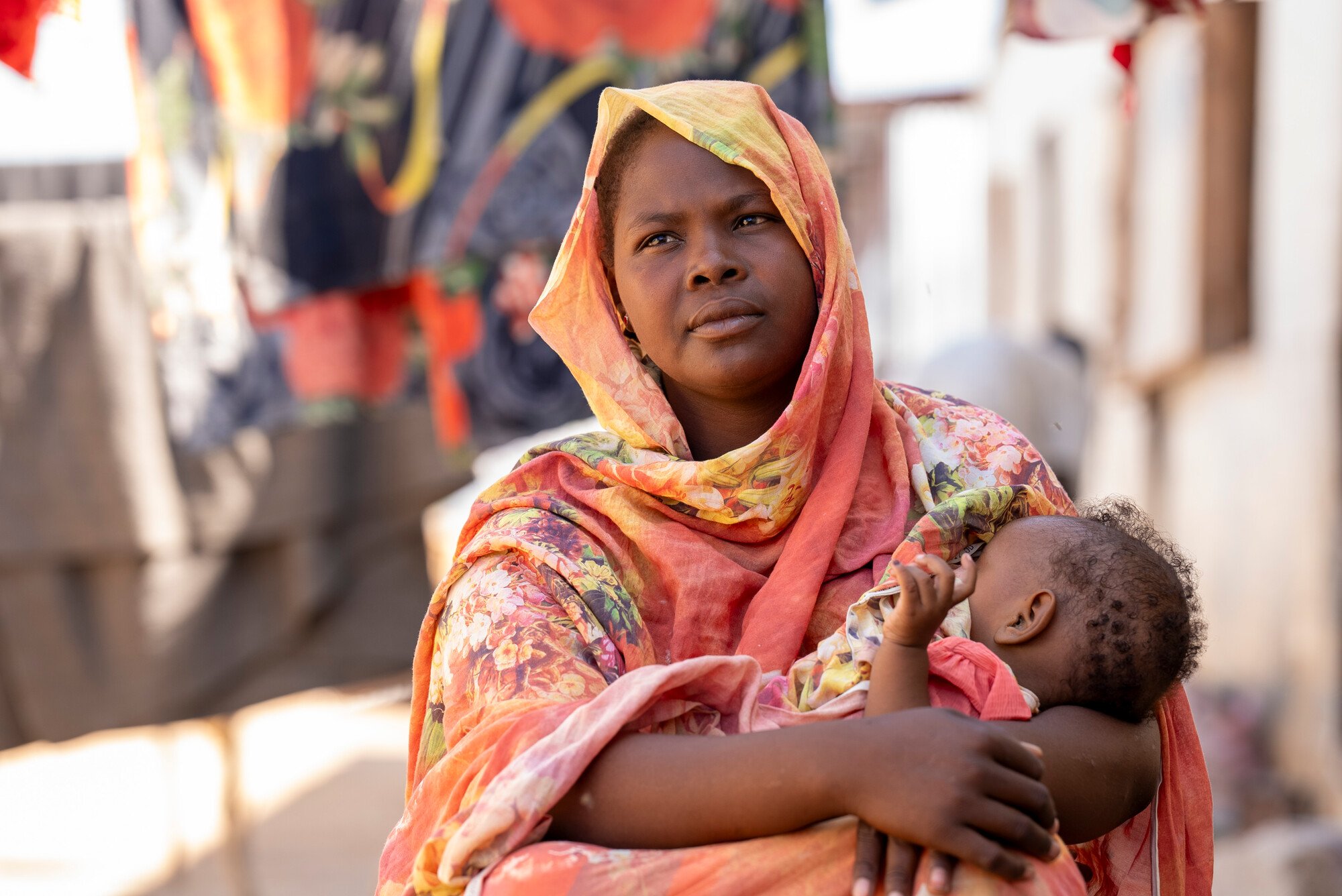Learn how you can help save lives and increase access to clean water.
As storm clouds gather in the sky over her head, Nur Jahan walks with her baby daughter in her arms on a narrow path between temporary tent homes. The path is in part of a massive refugee camp in Bangladesh where nearly a million people are seeking shelter.
“I have been living in this refugee camp for more than three years,” she says. “There are many challenges we are facing, including hot weather. It’s tough to live inside these tents.” She says water is scarce, and people do not have enough food—but she is just as concerned about a new threat: Public health officials had just confirmed the first cases of COVID-19 in the area.
“I know about coronavirus,” she says. Jahan (not her real name) says volunteers in the camp have explained the disease and how to prevent it. “I heard that we have to clean hands often with soap … We also have to maintain distance from each other. If someone gets sick, we have to take the person to the hospital.”
Oxfam is providing assistance to refugees in this area of southern Bangladesh near Cox’s Bazar, where more than 855,000 Rohingya people are living in extremely overcrowded conditions. With help from the United Nations, Oxfam built a water treatment plant that handles sewage from 150,000 people. It took seven months and was finished in 2019. When the threat of COVID-19 emerged early in 2020, Oxfam stepped up soap distribution, and shared information about the disease.
The response to the COVID-19 threat was followed by another potential disaster: Cyclone Amphan in the Bay of Bengal struck a glancing blow to the area near Cox’s Bazar, delivering heavy rains that threaten to contaminate the scarce water supply in the area. Oxfam is delivering assistance to 173,000 of the refugees in the area, as well as 389,000 residents in low-lying areas nearby who also need clean water, help with sanitation services, and soap to keep clean.
Refugee camps at risk
People in camps for refugees and displaced people (those seeking shelter who have not crossed an international border) are at particular risk in the COVID-19 pandemic. Oxfam and our partners are adapting our work in several ways to ensure people get what they need in these challenging times.
Clean water and soap: Providing clean water and soap is essential to helping refugees and other people displaced from their homes keep clean and avoid communicable diseases like COVID-19. In western Ethiopia’s Gambella province, Oxfam has been providing clean water and soap to people from South Sudan who have fled over the border and are seeking shelter in several camps in this area. Oxfam is expanding a surface water treatment system to increase the amount of water available in two areas hosting refugees. After treating the water, Oxfam will bring it by truck to camps and will increase the amount of water available from 10 to 15 liters per person per day.
Sharing basic information: Promoting good hygiene in the face of a pandemic is critical to slowing the spread of disease. But in many communities, people lack information and may not understand that hand washing reduces the risk of infection, for example. This is particularly true in refugee camps and anywhere people are isolated and lack information.

As Oxfam staff learned when responding to the outbreak of Ebola virus in West Africa in 2014, people who don’t know how a disease is transmitted, and how to avoid being infected, face higher risks. To fill these gaps in information, Oxfam is producing radio broadcasts in the Central African Republic designed to provide accurate information about COVID-19, how it spreads, and how to reduce risks among people displaced by conflict and living in crowded camps. Oxfam is also working with trusted local leaders who can help share accurate information about fighting COVID-19, a tactic shown to be effective in dispelling inaccurate and harmful myths and conspiracy theories about diseases.
Keeping safe distance: In order to slow the spread of coronavirus and keep people safe, Oxfam and our partners who are helping refugees and others are rewriting the standards we use to deliver clean water, food, cash, and other assistance. Our staff now wear masks and gloves, set up hand washing facilities at locations where people arrive to pick up food or cash, and organize events in ways that keep people about six feet apart. To serve people in displacement camps in the Central African Republic, Oxfam water engineers and technicians are building water taps that are far enough apart to ensure a proper social distance so people can get water more safely.
Honoring the courage and resilience of refugees
On World Refugee Day—June 20th—we join people across the US to celebrate the courage and resilience of refugees—recognizing the hardships they have faced, the new lives they have created, and the positive impact they have around the world.




